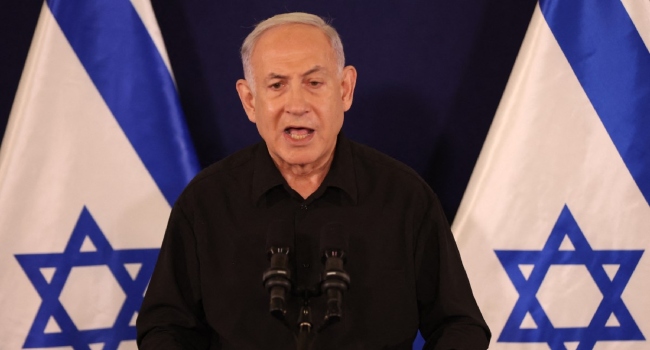
Israeli Prime Minister Benjamin Netanyahu has announced that his government will soon decide on a U.S.-brokered proposal for a ceasefire with Hezbollah, following escalating tensions on the border between Israel and Lebanon. Netanyahu stated he would present the ceasefire outline to his cabinet on the evening of November 26.
While the specifics of the ceasefire duration remain uncertain, Netanyahu made it clear that any violations, particularly attempts by Hezbollah to rearm, would trigger Israeli retaliation. “If Hezbollah violates the agreement and attempts to rearm, we will strike,” Netanyahu warned in a televised address.
This ceasefire proposal, part of a broader effort led by the United States and France to de-escalate the violence, comes amid a seven-front war that Israel claims it is fighting, which includes hostilities in Gaza, Syria, Iraq, and Yemen, in addition to the conflict with Hezbollah in Lebanon.
Despite Netanyahu’s cautious optimism, the announcement has been met with resistance within Israel. Far-right National Security Minister Itamar Ben Gvir denounced the ceasefire as a “historic mistake,” emphasizing that it failed to address the core objective of securing the safety of residents in Israel’s northern regions, who have faced ongoing threats from Hezbollah rockets.
Opposition leader Yair Lapid also criticized the ceasefire, urging the government to prioritize a hostage deal, as 97 Israeli hostages remain in Gaza following the October 7 Hamas attack. “We urgently need to make a hostage deal and bring home the citizens who were abandoned,” Lapid stated.
Meanwhile, protests erupted in Tel Aviv, with demonstrators raising placards and Israeli flags in opposition to the ceasefire. On the ground in Lebanon, the war, which Hezbollah initiated in support of Hamas in October 2023, has already claimed the lives of over 3,800 people, with the majority of casualties occurring since September.
Netanyahu, however, remains focused on what he sees as a broader threat. “With Hezbollah out of the picture, Hamas is left on its own. We will increase our pressure on Hamas and that will help us in our sacred mission of releasing our hostages,” he said, referring to the ongoing military efforts in Gaza.
As Israel’s security cabinet weighs the proposal, the future of the ceasefire remains uncertain, with the potential for both internal and external pressures to shape its outcome.







